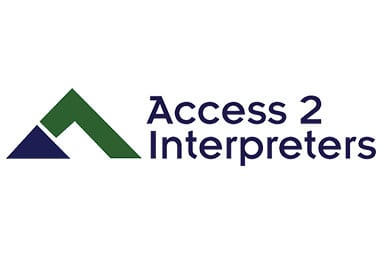
Native vs Non-Native Conversation Habits
- Posted on
- access2interpreters
If you have ever tried learning a new language and practiced with a native speaker, you are probably familiar with some of the unique habits that come up between native and non-native linguists.
One of the best components of learning new languages is the interaction with native speakers. You may have noticed some of these interesting conversation habits that come up when you and a conversation partner get together.
Non-native speakers tend to use perfect grammar
The first thing you learn in a new language is the basic construct of grammar. You start by practicing the language with the perfect tense and put subjects and objects exactly where they belong. It takes a lot of practice and immersion to learn a language’s natural slang and casual abbreviations – and it’s a bit of a learning curve to understand native speakers on the street.
Where a native might say something like “You gonna be there tonight?” A non-native speaker might say the more grammatically correct “Are you going to be at the dinner tonight?”
Native speakers have common euphemisms
Euphemisms are used in language to soften a difficult topic. For example, in U.S. English, animal euthanasia is rarely referred to as “euthanizing the dog”, but instead as “putting the dog down”. Particularly in the English language, some euphemisms are so commonly used that they have become accepted as the default term.
Non-native speakers find themselves surrounded by new, unfamiliar euphemisms all the time, and it can be an interesting challenge to learning which euphemistic sayings are appropriate in a setting.
Non-native speakers unintentionally mimic accents
Accent mimicry is one of those annoying quirks about learning a new language that also serves as a fun party trick. Learning how to speak a new language is all about listening to native speakers and trying to copy how they speak, down to the intonation. You become very skilled in mimicking native speakers, and this talent may take over even when you aren’t trying to mimic others.
At one international language conference hosted in English, a native Chinese speaker was chatting with someone from France, who naturally spoke French-accented English. By the end of the day, the Chinese speaker found herself speaking English in a French accent, because she couldn’t turn off her listening skills!
Native speakers talk quickly
When you are a native speaker, it becomes easy to blend words together and speak very quickly, because you are used to other native speakers being able to understand you. Native speakers may take this skill for granted, and forget to pace themselves to be understood when they are around non-native speakers.
You should be careful to not patronize a non-native speaker, and don’t “dumb down” the conversation for their sake – but be patient and willing to take a learning moment from your dialogue together.
Non-native speakers are unable to tune out
Much of the language-learning process is in attentive listening. When you get accustomed to a new language, you have to strain to listen and make sure you are hearing all the important parts of a sentence, because you don’t have the advantage of native speaking skills to help you fill in the blanks when you miss pieces of a conversation.
Unfortunately, this means that when you are using a new language, you lose the ‘cocktail-party effect’, or the ability to tune out background noise and just hone in on your speaking partner. This can be a unique challenge if you are traveling overseas and want to visit a crowded venue with locals!

